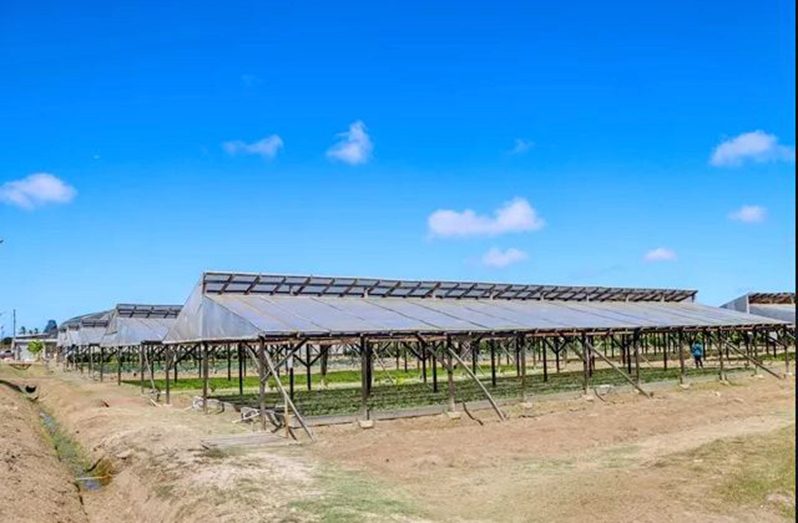TWENTY-FIVE shade houses are currently under construction at the National Agriculture Research and Extension Institute (NAREI) in Mon Repos, East Coast Demerara.
These structures are designed to cultivate two types of hot peppers—bull nose and tiger teeth—for an already secured market in St. Lucia.
It is projected that each cycle of the 25 shade houses will accommodate approximately 11,250 plants, yielding over 75,000 pounds of pepper per cycle. This will result in an annual production of about 75 tonnes of fresh peppers.
This initiative is part of the Agriculture and Innovation Entrepreneurship Programme (AIEP), which was launched by President Dr. Mohamed Irfaan Ali in January 2022.
The AIEP aims to stimulate interest in agriculture, boost economic growth, and improve the livelihoods of youths.
Since its inception, the programme has led to the construction of 120 shade houses across the country. In 2023 alone, 90 new shade structures were completed, bringing the total to over 450.
By December 2023, the AIEP had garnered some $25.4 million. Notably, over 70 per cent of young agriculturists participating in the programme have become successful agri-business entrepreneurs.
This year, Guyana plans to construct approximately 200 more shade houses to meet the increased demand and profitability of high-value crops.
The 54 shade houses at NAREI continue to yield remarkable results in the cultivation of crops such as cauliflower, bell peppers, lettuce, and carrots. Additionally, a variety of other crops including kale, mint, celery, ‘blue star’ sweet peppers, cilantro, and parsley are being grown on-site.
The harvested crops are distributed to communities, farmers’ markets, hotels, and restaurants.
Furthermore, Guyana boasts one of the largest hydroponic facilities in the Caribbean at NAREI, which will soon be replicated in Regions Two, Five, and 10 benefiting over 300 youths.
Guyana’s approach emphasises innovative agro-business opportunities through the integration of technology, research, and the active involvement of women and young people.
This investment in shade houses, hydroponics, and other agricultural mechanisms is expected to significantly reduce CARICOM’s high food import bill by 25 per cent by the year 2025.
In 2021, Guyana spent $2.6 billion on importing high-value crops to satisfy the hospitality sector. However, with local production now in place, the country has managed to reduce importation by almost 50 per cent.



.jpg)








